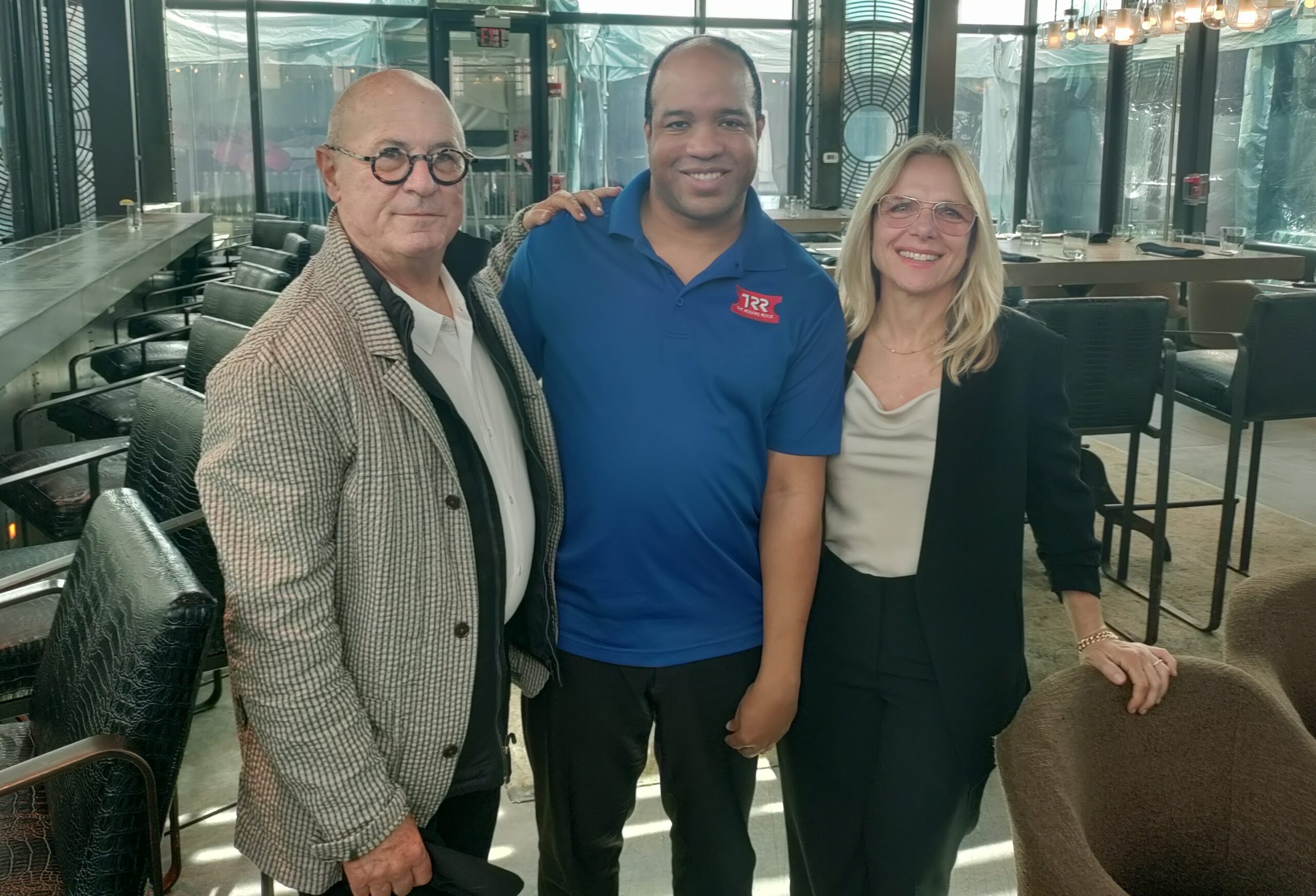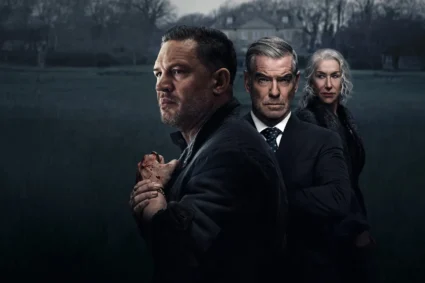
On this edition of SNAPSHOTS, a documentary that was released fifteen years ago would change the way you look and potentially feel about the food we eat. Food Inc. examines the modern food industry, and raises alarms about both the industrial production of meat and the modern methods used to grow grains and vegetables. This Friday, due to the many changes in the food industry – the long awaited sequel Food Inc. 2 answered the call once more.
Here to talk to me about the documentary are the co-directors/producers of the film, Robert Kenner & Melissa Robledo.
It has been 15 years since we have seen the original documentary and I read that you never intended to make a sequel, why was now the right time?
Robert Kenner (RK): Well, you know, as filmmakers, the wonderful thing about making documentaries is you get to enter worlds you know nothing about. And so, it’s always exciting to start a project. It’s like, you’re like the audience itself, learning as you go. So, having made “Food Inc.”, we thought this is not a subject we want to go back and revisit. But then during the pandemic, all of a sudden, it just revealed problems with this consolidated food system in a way that just seemed really important to talk about. We talked about consolidation in the first film, but things have become all the more consolidated, all the more brittle. And the system is truly fragile and could fall apart very easily. And it’s not good for the people who produce the food. And it’s not good for the eaters who buy it.
So that was what brought us into it. But as we were making it, we started to find that there was a subject about ultra-processed foods, which was brand new. And that didn’t exist when we made the first film. That’s really the big news in this food world. Since we made the first one, and how 60% of Americans calories come from ultra-processed. And ultimately, the diseases connected with this food are tremendous. Ultimately, there’s been a study at the NIH. If you compare foods with sugar, salt and fat, the identical nutrients from an unprocessed meal with the identical nutrients up for an ultra-processed meal, people would tend people were eating 500 calories more per day.
As Marion Nestle, who’s a food nutritionist has said, that is an extraordinary number. Because normally when you have these studies, if a large number would be 50 calories, and this was 500. There’s something about this food that makes you want to eat more of it. It’s one could say it’s almost addictive and we had scientists say it was addictive. And that this food, it’s not only what’s in it, but it’s the process of making it with fake flavors that go into it that are harming us to a tremendous extent.
Melissa, this is your directorial debut after producing docs for more than twenty years, what made you step up to directing for the first time?
Melissa Robledo (MR): To be behind the scenes. Anyway, it’s been an honor to do it.
Since the first doc, we have the movement to reform the food system in a coalition of powerful allies with Senators Jon Tester and Cory Booker and they both understood that American farmers & consumers now share a common interest and that unchecked corporate greed threatens the well-being of both. Can you talk about bringing those two into the documentary because I’m glad that that only they understand what is at stake here. And both come from different worlds yet they shared a common goal.
RK: Well, first of all, if you’re gonna go to the movies and watch this, they’re thoroughly entertaining and fun to be with, and fun to watch on screen and they’re really great. I think 15 years ago, we didn’t have advocates in the Senate. You know, this is brand new. And Cory Booker, all of a sudden when he was mayor of Newark realized, “wait a second, my constituency is getting sick in the boot.” Generally, the Farm Bill was always being written by people in rural America. And he said, “wait a second, it affects us too. You know, we want to watch it. We want to be part of that and help regulate what we’re eating.”
And the alliance between rural America and Cory Booker and Jon, the only full-time farmer in the America of the US Senate. It was truly hard to book with Jon Tester, we had a great time with him. It’s hard to get time with him because there’s the Senate duties but what comes first are his farm duties. I think it makes his staff a little crazy, because he has to work really hard to maintain his farm. And he’s a very proud farmer. But the idea of those two guys coming together, I think is great because John Tester’s world has become hollowed out by this consolidated system.
Ultimately farmers not having any place, no competition, and who’s going to buy their crops. As John Tester said, “these guys go out to a golf course and set the price.” There’s no competition. And meanwhile, the food that goes into the supermarkets that people are buying, has all these different titles of different companies, but they’re really only made by two or three companies who are not competing. Therefore, the prices are being fetched. It’s great to have those two teaming up. They’re thoroughly fun to be with and to watch.
Asides from the introduction of ultra processed foods, what have been the most shocking discovery since the first film?
MR: I think the emergence of alternative proteins, different types of meats. This is an area that we knew consumers would be interested in. And it’s an area we have some ambivalence about because there are some alternative meats that solve one problem and cause another. We don’t really want to make the perfect enemy of the good, but it is important to recognize that what we’re really looking at. I’d say that was an area that was interesting.
RK: As Michael Pollan says, “people ask him, What should I eat?” And he says, “it comes down to what do you care about? So if you care about animal welfare, you should eat an Impossible Burger. If you care about your health, you might not want to eat it, because it’s an ultra processed product.” Easy for me to say.
One inspiring moment I enjoyed is the momentum of food and farm workers but we now see food workers of Starbucks and Chipotle unite and come together. Did you expect to include the narrative within the documentary?
RK: It’s again, inspired by looking around during COVID, and seeing supermarket workers or the Instacart people and the exploitation that was being seen where it almost you felt like you’re at a dystopian world. And it was horrible. And so, became interested and realizing that the average fast food worker makes less than a year than the CEO of McDonald’s or Taco Bell, making an hour.
And something is wrong. You know, that disparity did not exist 30 years ago, right. Watching our character, Fran, who’s an amazingly interesting, very smart lady who works at Taco Bell. She ultimately has not been able to afford working 40 to 50 hours a week has not been to a doctor in her entire adult life because she can’t afford it. Something is wrong with that system, when the minimum wage in the United States on a federal level is $7.25, something’s broken. And that became an important issue for us. We cared more about workers in this film, because I think people are more sensitive to it, and saw it during the pandemic are willing to look at that, because including one, I think people cared more about the animals than they did about the workers, who are also treated horribly. I think this was a time where we wanted to show what was happening with these workers.
One of the things that intrigued me while I was watching that film was the Defense Production Act that President Trump used during COVID-19, which I found out it was created roughly 75 years ago. Why would you want to highlight that act within the film?
Consolidation is obviously a huge theme of this film and how it affects us as consumers as workers. And one of the ultimate casualties of consolidation is our democracy. That’s what we are a big concern was and why we felt it was really essential to include this. So, the goal of antitrust laws, when they were made was to prevent corporations from having undue power over the government.
And that’s exactly what we saw happen with the meatpacking companies invoking the Defense Production Act, writing the letter for Trump to sign to keep the plants open, to keep workers going to work at a time when they were in when their lives were in danger. And so, what are our point is to say that, while we’ve been sold a bill of goods that larger and larger corporations will give us products for less and less money. We are sacrificing much more we’re sacrificing worker wages or sacrificing our environment and we could be sacrificing our democracy.
What is the biggest call of action this go-round? Has it changed or evolved since the first film?
RK: What we think right now we’re in Washington meeting with FDA and the Domestic Policy Council. To start labeling on food on ultra-processed foods we think is the most essential thing that will save lives and save money for Americans because of the health bill that is being created by this food that we’re eating. And that is our one main call to action. And our second call to action is I think people are more conscious of what they eat.
I think the food movement with our film and Michael Pollan’s books and Eric Schlosser’s books and other wonderful movies helped raise consciousness and people started shopping and eating with their values. But we realize these corporations are much more powerful than we ever imagine. Maybe we were a little naïve. We need to help sort of create a level playing field for the consumer and for the farmer. I think labeling would be one thing and providing access to small farmers to be able to sell their product. Yeah, to be able to compete on an even playing field.
FOOD INC 2 has its sneak preview in 100 theatres today ahead of its theatrical and digital release across digital platforms this Friday, April 12th



